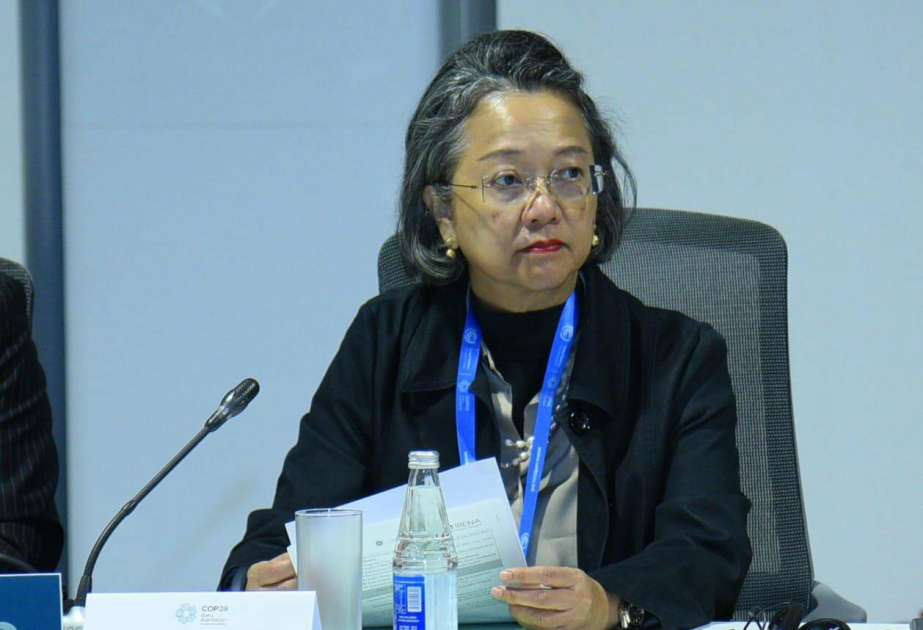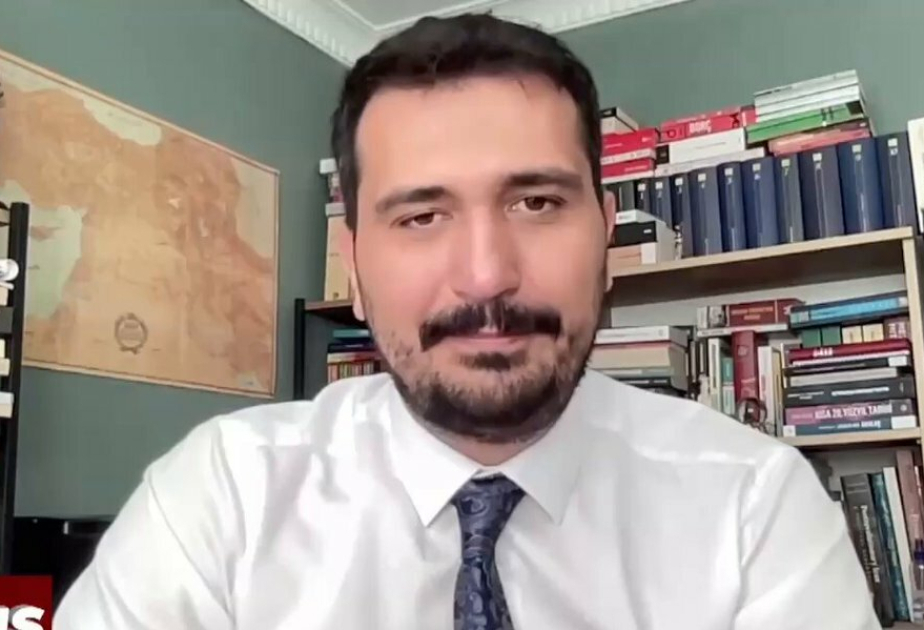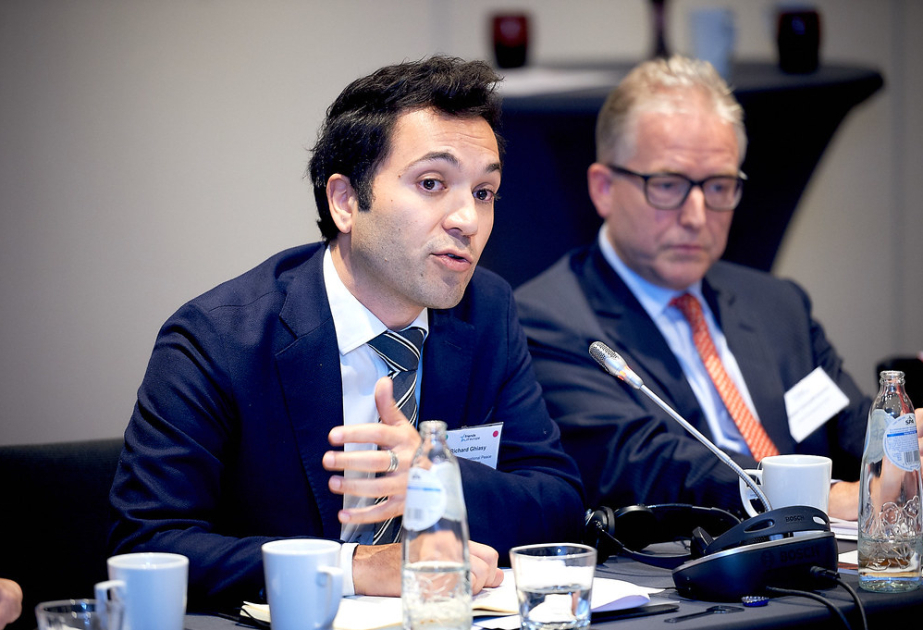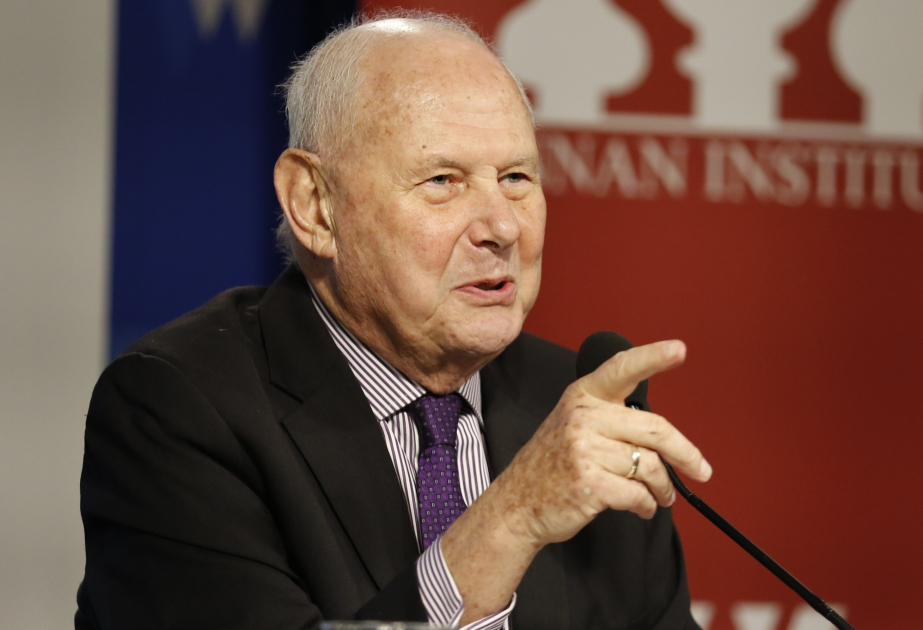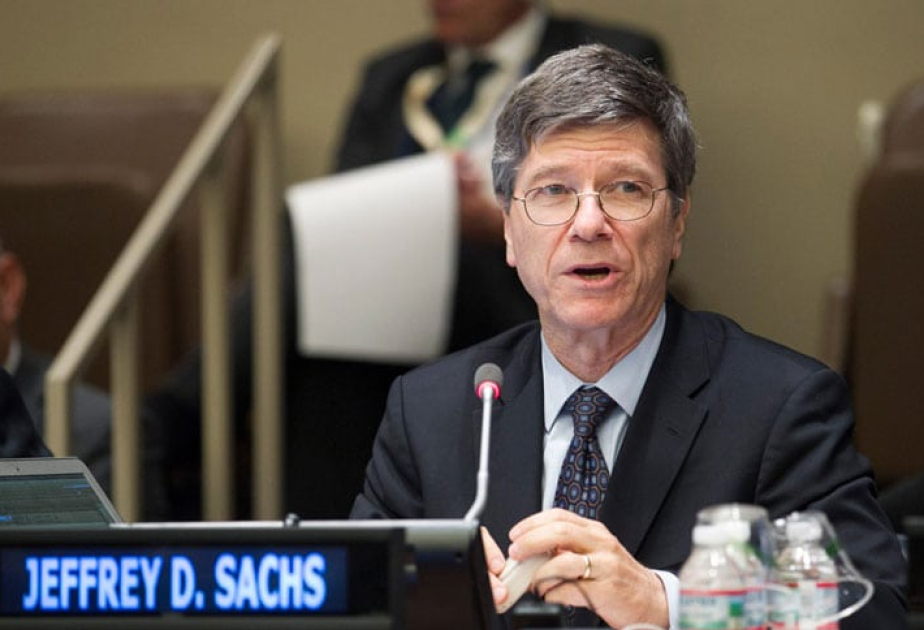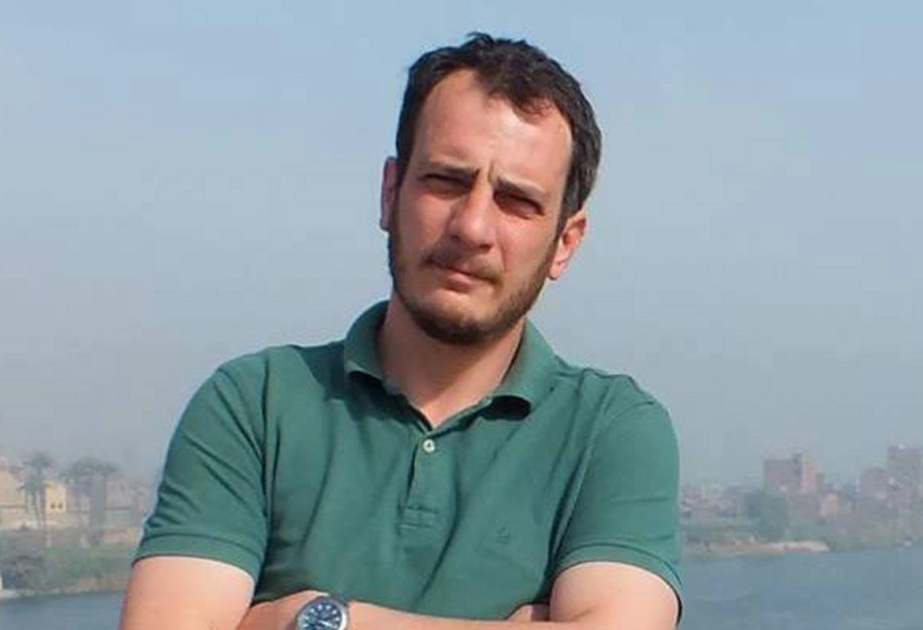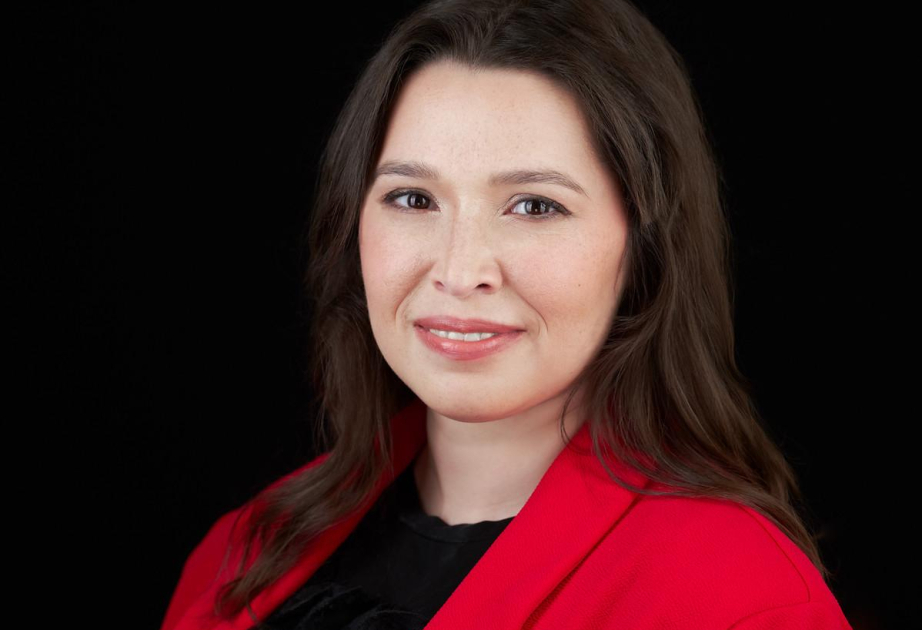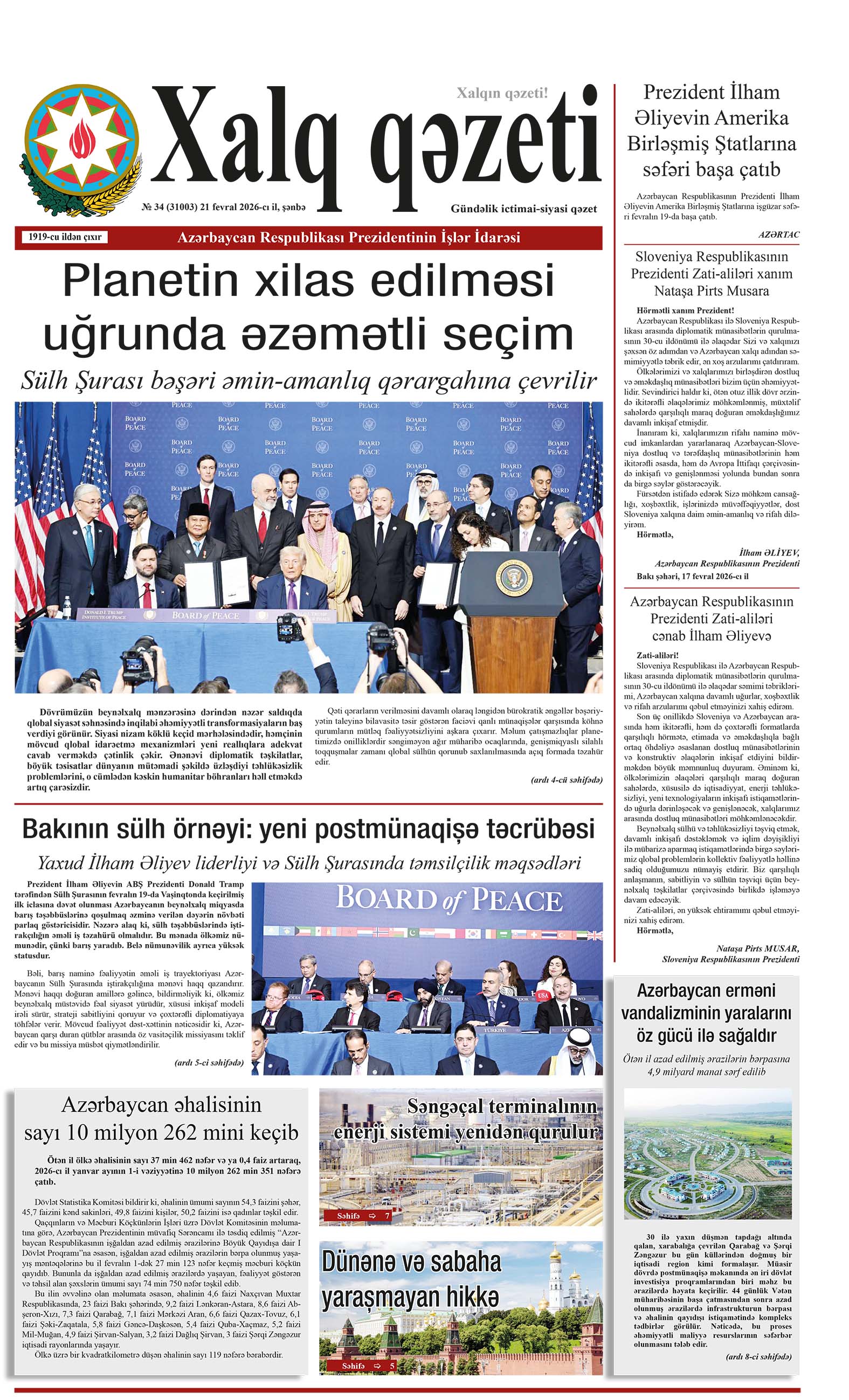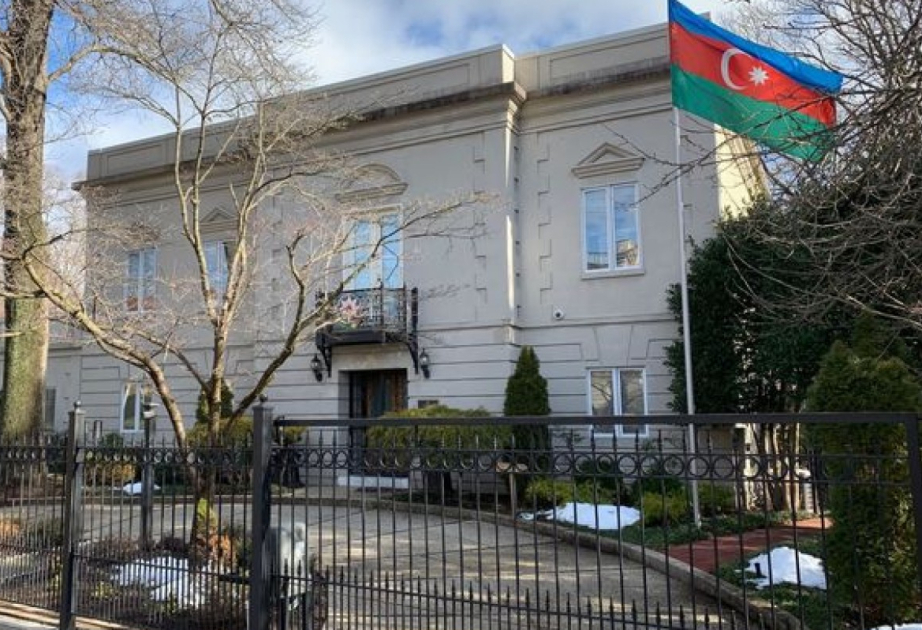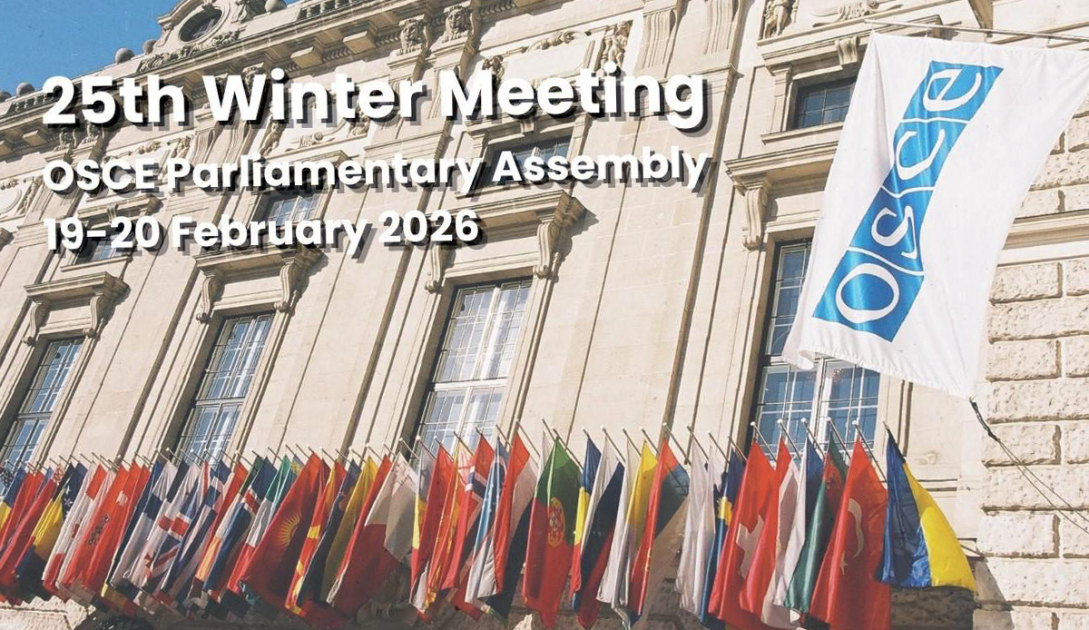ECONOMY
UN Under-Secretary-General: Azerbaijan has made significant and commendable contribution to development and expansion of SPECA – INTERVIEW
The Azerbaijan State News Agency (AZERTAC) presents an exclusive interview with Armida Salsiah Alisjahbana, Under-Secretary-General of the United Nations, Executive Secretary of the United Nations Economic and Social Commission for Asia and the Pacific (ESCAP).
-How do you assess the role of UNESCAP as a platform for multilateral cooperation? What specific initiatives have helped to strengthen this role?
-ESCAP serves as the regional hub promoting cooperation among member States to achieve inclusive and sustainable economic and social development in Asia and the Pacific. ESCAP provides the strategic regional link between global, subregional and country-level programmes.
Partnerships lie at the heart of ESCAP's mandates and work. They have transformative power and play a vital role in mobilizing and sharing knowledge, technology and resources. ESCAP pursues partnerships with a wide range of stakeholders, including governments at all levels, organizations within the UN development system, multilateral development banks, academia, think-tanks, civil society organizations and the private sector.
One key contribution of ESCAP in the Central Asia subregion is connectivity. For example, ESCAP promotes transport connectivity and cooperation through the International Agreement on the Asian Highway Network, the Intergovernmental Agreement on the Trans-Asian Railway Network, and the Intergovernmental Agreement on Dry Ports. The Dry Ports agreement is of particular importance for Azerbaijan, a major dry port developer in the region, with 11 existing and 10 potential sites as of 2024.
In addition to these agreements, ESCAP plays a central role in developing, promoting and supporting member States in the implementation of the Regional Action Programme (RAP) for Sustainable Transport Development in Asia and the Pacific (2022-2026). Enshrined in the vision of competitive, environmentally sustainable and inclusive transport in the region, the RAP is geared towards advancing efficient, resilient, environmentally sustainable, safe and inclusive transport and logistics systems and services.
By implementing the RAP and advancing the three intergovernmental agreements, ESCAP provides a neutral platform for dialogue, negotiation and consensus-building among diverse stakeholders. It encourages joint investments in cross-border infrastructure and harmonized transport policies and promotes knowledge-sharing and capacity-building through regional workshops, studies and technical assistance.
- What key steps are being taken to further develop Azerbaijan’s cooperation with Central Asia within the framework of SPECA?
-Azerbaijan made a crucial and commendable contribution to revamping and scaling up SPECA by hosting the 18th Governing Council meeting and Economic Forum in 2023. It was the first Summit of Heads of State which initiated the Multi-Partner Trust Fund.
Further to the leadership, the Government of Azerbaijan proactively facilitated member States and UN organizations to develop two new initiatives for SPECA: the Climate and Innovation Dialogue and the Forum of Climate Smart Cities. The Dialogue is expected to promote cooperation on national climate action plans, energy and other key sectors and green businesses. The Cities Forum will support cooperation on urban planning, urban forest, transport, energy, construction, circular urban economy and urban agriculture. These two new platforms bring governments and diverse stakeholders to collaborate on mitigating socioeconomic vulnerability and transitioning to low emission economies. The initiative of Azerbaijan, utilizing the Summit and COP29, is a timely response to the need of the SPECA countries.
The Multi-Partner Trust Fund (MPTF) is a catalyst for strengthening cooperation within SPECA. As President Ilham Aliyev pledged at the SPECA Summit in 2023, Azerbaijan has already contributed to the SPECA MPTF Fund $3.5 million. It will help to start implementation of meaningful projects in 2025.
Azerbaijan actively participates in the activities of the SPECA Thematic Working Group on Sustainable Transport, Transit and Connectivity (TWG-STTC), which has become a valuable platform for transport officials, development partners and other stakeholders in Central Asia to discuss transport policy issues, foster knowledge exchange and expand their network as well as creating new opportunities for sustainable transport development in the region.
-What were the main provisions laid down in the Dushanbe Declaration regarding attracting investments to the SPECA region?
- At its latest session held in Bishkek, Kyrgyzstan, in November 2024, the Thematic Working Group agreed to take further steps in drafting the SPECA Transport Connectivity Strategy with a view to strengthening the coordinating role of the TWG-STTC in transport-related activities carried out in SPECA member States. ESCAP would like to invite Azerbaijan to continue their active participation in this important work which would reinforce the role of SPECA in coordinating the efforts to develop transport connectivity in the region and help identify relevant priorities for strengthening economic ties between Azerbaijan and Central Asian countries.
On investment, the recently adopted Dushanbe Declaration recognized the importance of investment promotion and cooperation among investment promotion agencies in SPECA countries, especially in terms of developing mechanisms for effective collaboration among investment promotions agencies (IPAs) to promote the region as a more unified destination for investment in green and digital economy sectors and to identify opportunities and address common challenges in investment promotion. In this context, ESCAP is closely consulting with the relevant government counterparts in Azerbaijan to ensure their support and participation in this initiative.
- How do you assess the current trends in the field of sustainable energy and transport links in the region, and what role does Azerbaijan play in this process?
- ESCAP, in collaboration with the Ministry of Energy, is developing an SDG 7 Road Map for Azerbaijan. This Road Map will undertake a holistic approach to long-term planning for the energy sector and present technological options and enabling policy measures for Azerbaijan to achieve the targets of SDG 7 and the Paris Agreement. In addition, it will also explore potential for Azerbaijan to further strengthen the energy sector, including increasing the share of renewable energy in the energy mix and increasing energy connectivity, particularly focusing on cross-border power system integration and trade.
-In what specific projects and initiatives can Azerbaijan and Central Asia cooperate to further strengthen economic and energy ties?
- Under Azerbaijan’s presidency, COP29 introduced a number of green energy pledges. The Green Energy Zones and Corridors pledge highlights one opportunity for increased cooperation between Azerbaijan and Central Asia, through greater energy connectivity. The proposed Caspian Sea-Black Energy Corridor would enable increased integration between Central Asia, Azerbaijan, Georgia and Europe and help unlock renewable energy resources in the Caspian Sea and elsewhere in the region. The Green Energy Corridor pledge builds off ESCAP’s Green Power Corridor Framework. ESCAP also highlighted the potential to enable the cross-border trade of renewable energy and other power generation resources through the establishment of a regional electricity market among the Economic Cooperation Organization (ECO) member States, in the publication “Power market roadmap for Central and West Asia: promoting cross-border electricity connectivity for sustainable development.”
-What key measures are included in the plans to modernize the Trans-Caspian International Transport Route (Middle Corridor)?
-Azerbaijan and Central Asian countries can also cooperate on expanding and modernizing the Trans-Caspian International Transport Route, best known as the Middle Corridor. This involves upgrading railways, ports and logistics hubs to enhance intermodal transport and harmonizing transport policies across borders.
Azerbaijan, along with other Central Asian member states, was a beneficiary of the project on “New technologies and digital transformation in support of more resilient and competitive railway operations in North and Central Asia” (2022-24), jointly organized by ESCAP’s Transport Division and Subregional Office for North and Central Asia (SONCA). To build upon the success of this project, Azerbaijan and Central Asia can further collaborate on the development and implementation of digital transport solutions, such as real-time cargo tracking, digital customs systems and single-window border operations.
In addition to the above projects, Azerbaijan can promote collaboration between the Baku International Sea Trade Port and its counterparts in Central Asia to establish integrated logistics hubs with seamless cargo transfer capabilities. Further promotion of cleaner fuel use can lead to the establishment of green shipping routes in the Caspian Sea.
Additionally, smart transport systems have been recognized for its role in increasing the efficiency, safety and effectiveness of transport systems. The Expert Group Meeting for North and Central Asia subregion on the Regional Cooperation for Sustainable Smart Transport Systems in November 2024 underscored the needs to reduce development gaps among countries in the region.
- What additional measures can be taken to accelerate the integration of economic infrastructure between Azerbaijan and the Central Asian countries?
- In addition to specific projects, Azerbaijan and Central Asian countries can benefit from strengthening regulatory frameworks for multimodal transportation, which will pave the way for further successful development of transport operations involving rail, road and inland waterway transport on the Caspian Sea.


